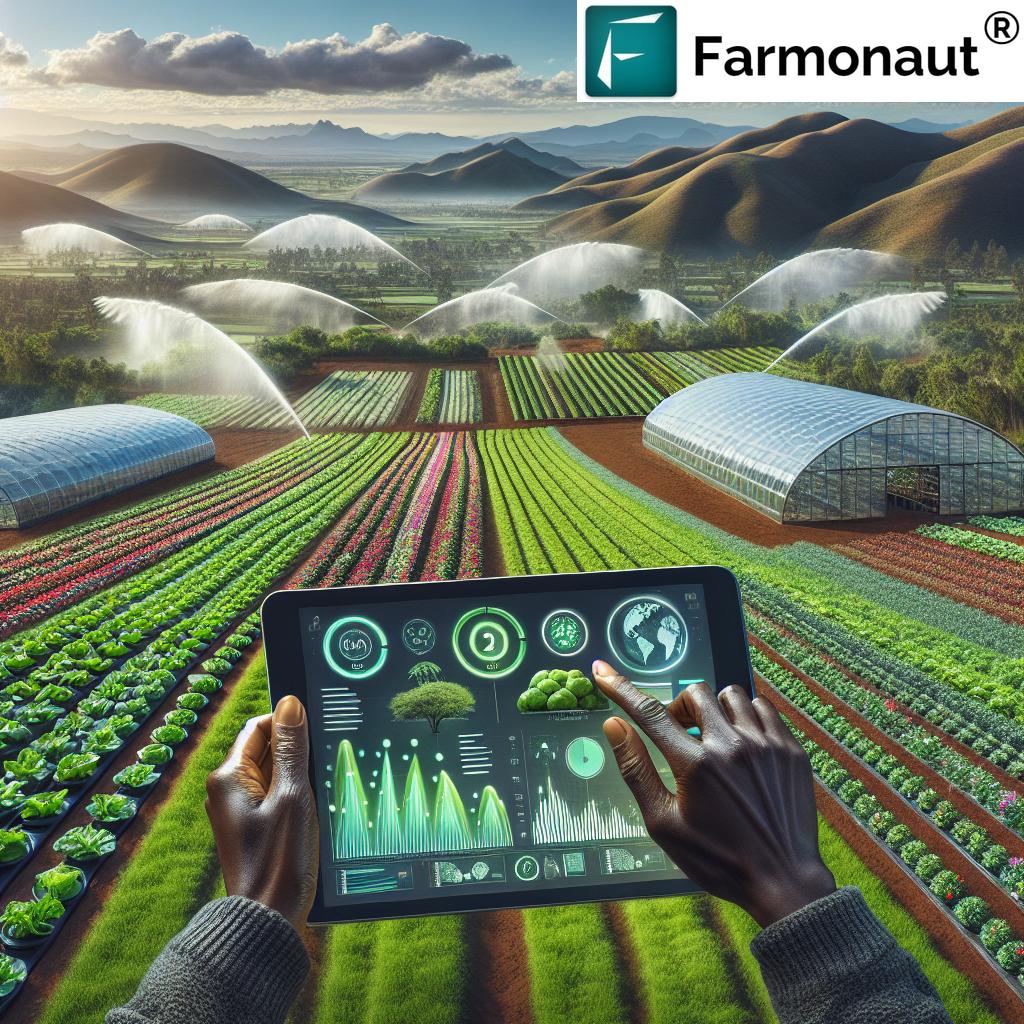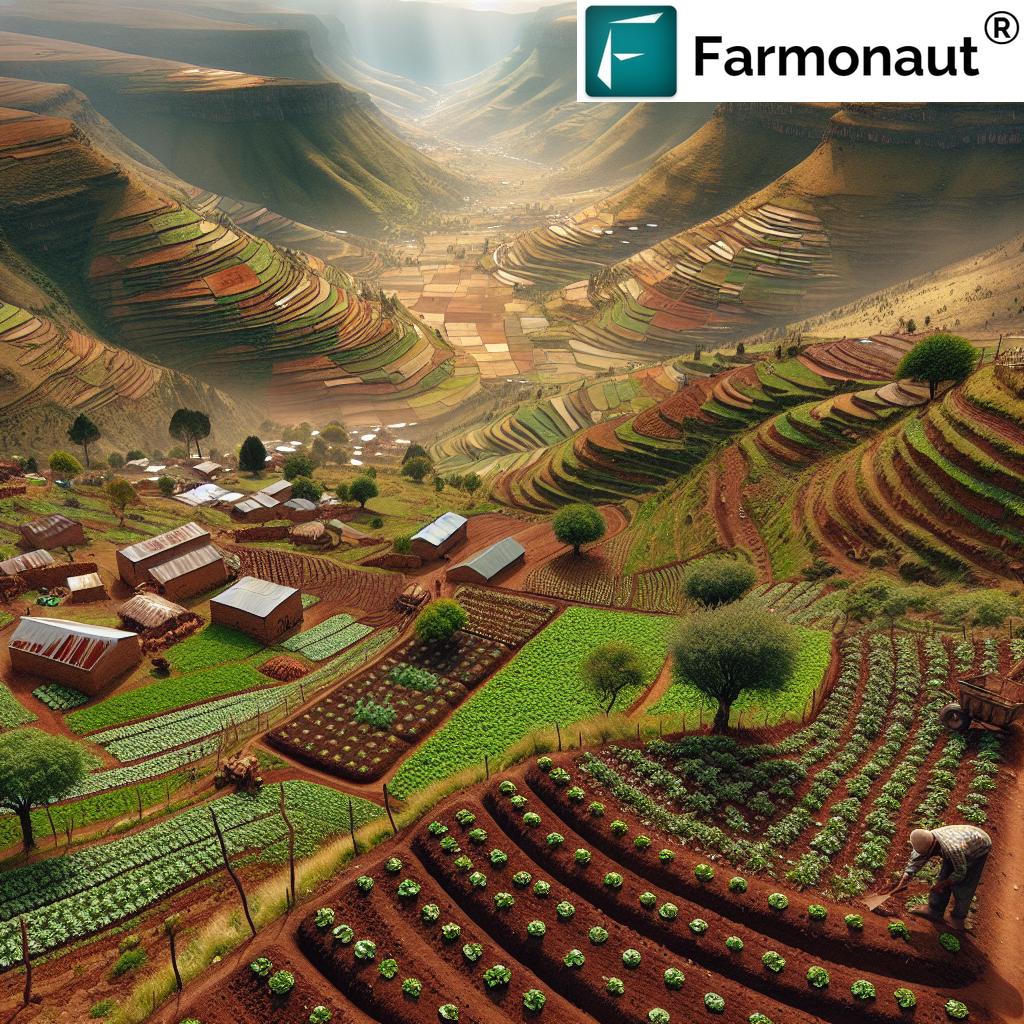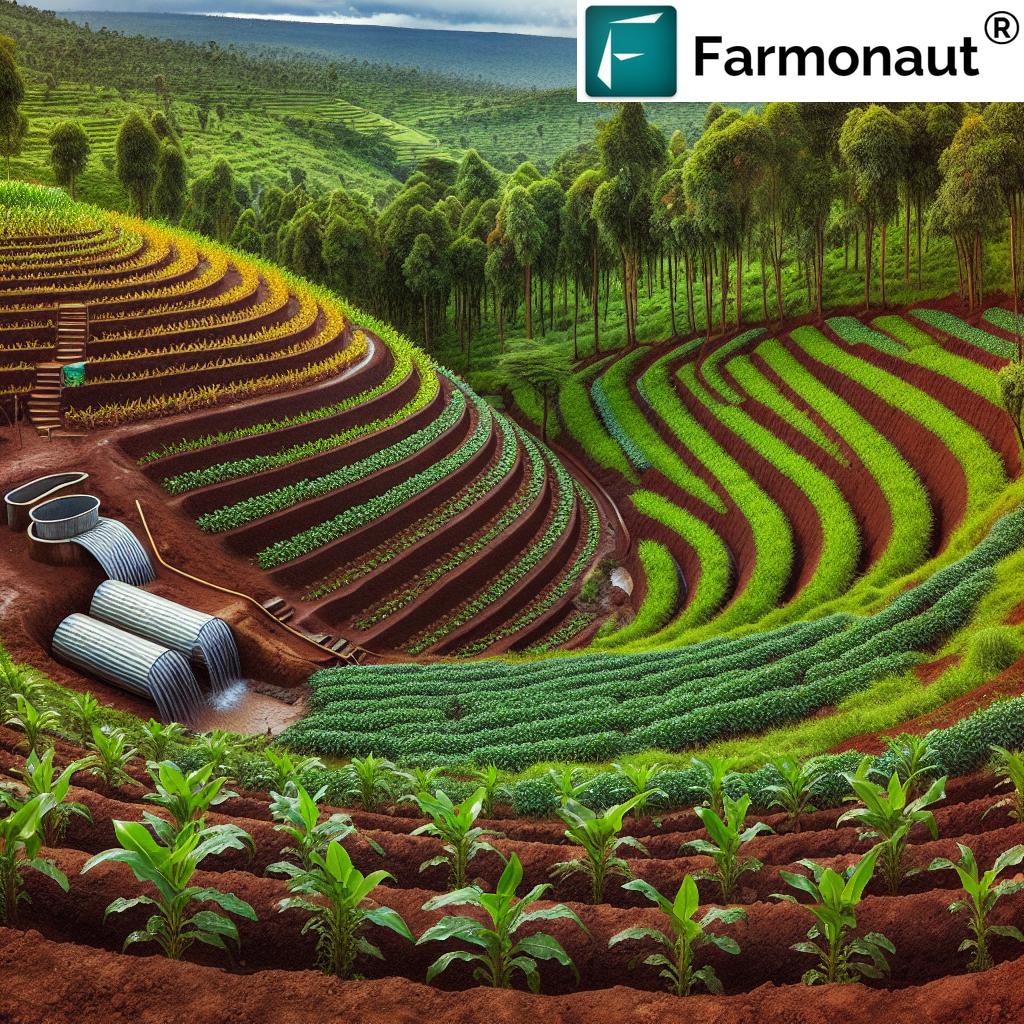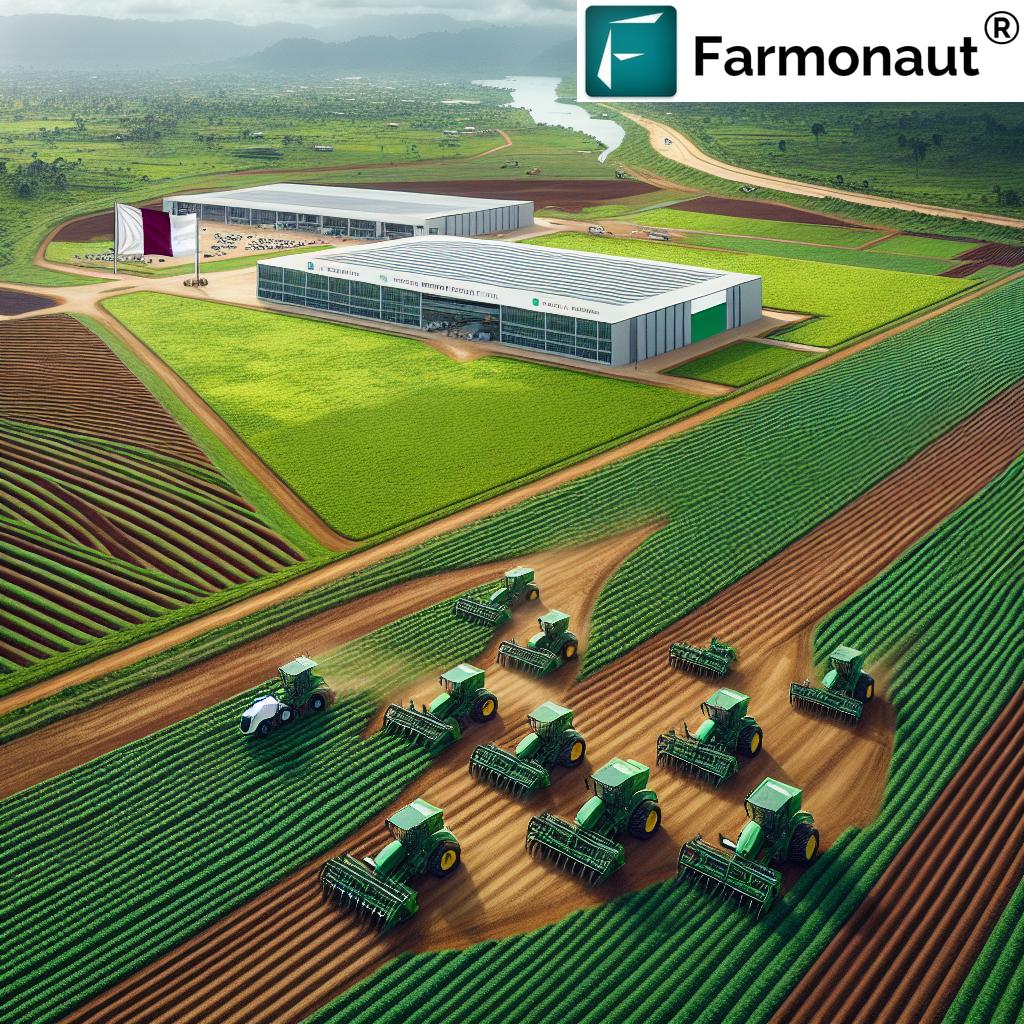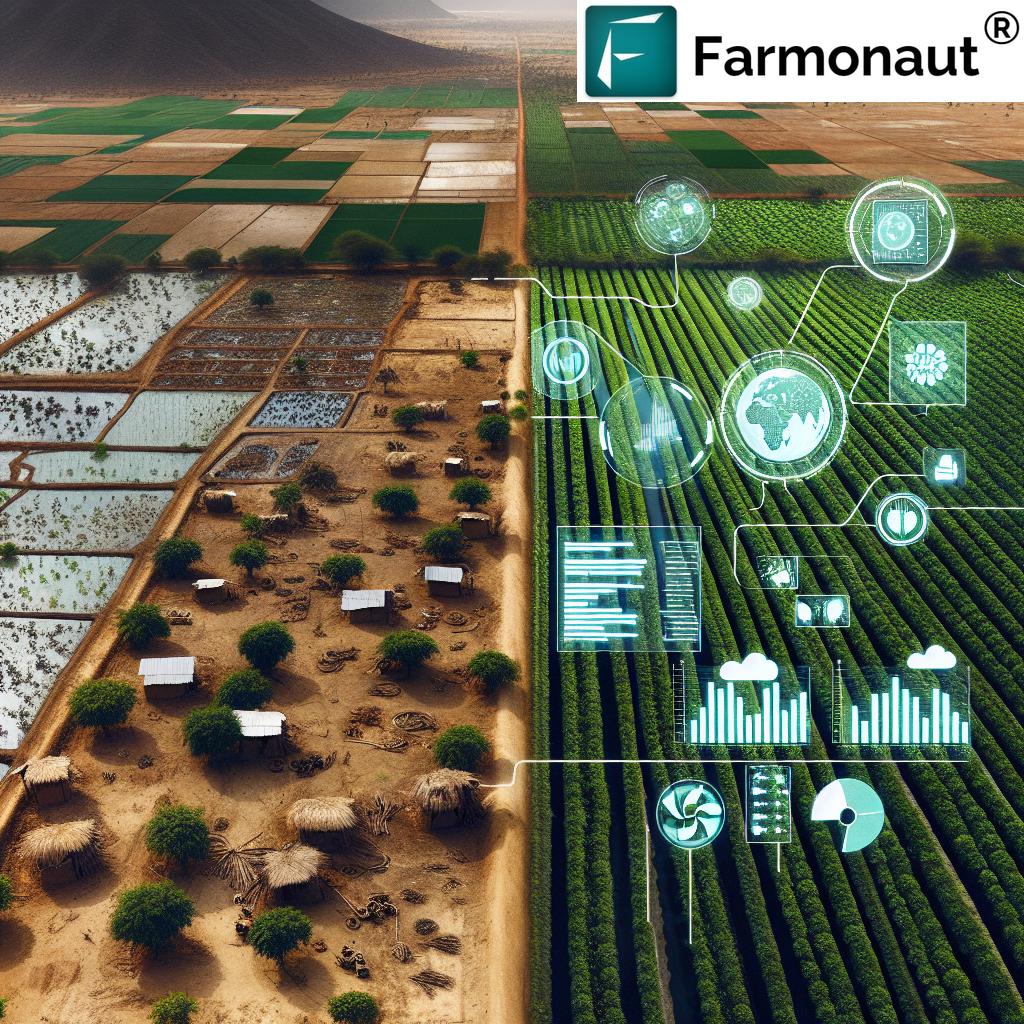Rwanda’s Agricultural Revolution: How AI and IoT Are Shaping Sustainable Agri-Food Systems
“Rwanda’s PSTA5 aims for a 6.5% annual growth rate in agriculture, revolutionizing the sector with AI and IoT.”
In the heart of East Africa, a transformative agricultural revolution is taking root. Rwanda, a country known for its breathtaking landscapes and resilient spirit, is embarking on an ambitious journey to reshape its agricultural sector. We are witnessing the dawn of a new era in Rwandan farming, where cutting-edge technologies like Artificial Intelligence (AI) and the Internet of Things (IoT) are being harnessed to create sustainable and resilient agri-food systems.
On December 7, 2023, Rwanda unveiled its fifth Strategic Plan for Agriculture Transformation (PSTA5) in Kigali, marking a significant milestone in the nation’s agricultural development. This comprehensive blueprint is set to revolutionize the way we approach farming, food security, and economic growth in the region. As we delve into the intricacies of this plan, we’ll explore how Rwanda is positioning itself at the forefront of agricultural innovation in Africa.
The Vision Behind PSTA5: Building Resilient and Sustainable Agri-Food Systems
PSTA5 is not just another policy document; it’s a visionary roadmap that aims to transform Rwanda’s agricultural landscape. The plan’s core theme, “Building Resilient and Sustainable Agri-Food Systems,” reflects a holistic approach to agricultural development that goes beyond traditional farming methods.
- Embracing advanced technologies for modernizing agriculture
- Focusing on food security and efficient land use
- Driving economic growth through agricultural innovation
- Addressing climate resilience and sustainability challenges
Rwanda’s Minister of Agriculture and Animal Resources, Mark Cyubahiro Bagabe, has emphasized the distinctive and innovative approach of PSTA5. The plan seeks to unify various elements of agricultural development, creating a cohesive strategy that addresses the multifaceted challenges facing the sector.
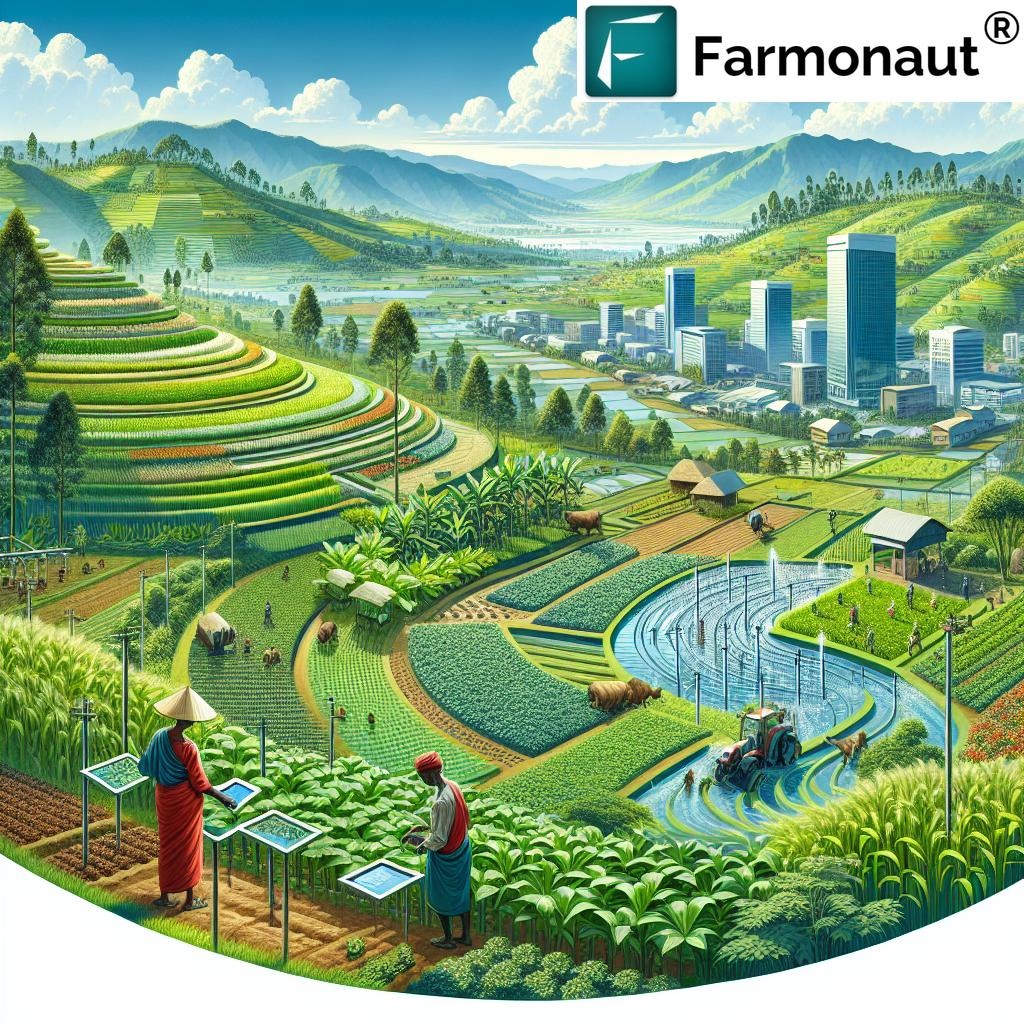
The Role of Technology in Rwanda’s Agricultural Transformation
At the heart of PSTA5 lies a strong emphasis on leveraging advanced technologies to drive agricultural progress. The integration of AI and IoT in farming practices is set to revolutionize the way Rwandan farmers approach their work.
Artificial Intelligence in Agriculture
AI is poised to play a pivotal role in Rwanda’s agricultural transformation. From predictive analytics for crop yields to automated pest detection, AI technologies are set to enhance decision-making processes for farmers across the country.
- Precision farming techniques powered by AI algorithms
- Smart irrigation systems that optimize water usage
- AI-driven crop disease diagnosis and treatment recommendations
One company at the forefront of this technological revolution is Farmonaut. Through its advanced satellite-based farm management solutions, Farmonaut is making precision agriculture more accessible and affordable for Rwandan farmers. The company’s AI-powered advisory system, Jeevn AI, provides real-time insights and personalized recommendations, helping farmers make informed decisions about crop management and resource allocation.
Explore Farmonaut’s innovative solutions:
Internet of Things (IoT) in Farming
The Internet of Things is set to transform Rwandan farms into smart, connected ecosystems. IoT devices and sensors will collect real-time data on soil conditions, weather patterns, and crop health, enabling farmers to monitor and manage their fields with unprecedented precision.
- Sensor networks for monitoring soil moisture and nutrient levels
- IoT-enabled drones for aerial surveying and crop spraying
- Connected livestock monitoring systems for improved animal husbandry
These technologies align perfectly with Farmonaut’s offerings, which include satellite-based crop health monitoring and fleet management tools. By integrating IoT devices with satellite imagery, Farmonaut provides Rwandan farmers with a comprehensive view of their agricultural operations, promoting efficient resource use and sustainable farming practices.
Key Objectives and Projected Outcomes of PSTA5
To better understand the ambitious goals of PSTA5, let’s examine its key objectives and the projected outcomes that Rwanda aims to achieve through this transformative plan:
| Objective | Description | Projected Outcome |
|---|---|---|
| Food Security | Enhance agricultural productivity and ensure stable food supply | 6.5% annual growth in agricultural output |
| Climate Resilience | Implement climate-smart agricultural practices | 30% reduction in crop losses due to climate-related events |
| Commercialization | Increase market-oriented farming and value addition | Export revenues to reach 1.54 billion U.S. dollars |
| Youth Engagement | Promote youth participation in agri-food systems | Creation of over 644,000 off-farm jobs |
| Women’s Participation | Empower women in agricultural activities | 72% engagement of women in agriculture |
“The Strategic Plan for Agriculture Transformation in Rwanda targets creation of over 644,000 off-farm jobs in five years.”
Addressing Agricultural Challenges Through Innovation
PSTA5 is designed to tackle several critical challenges facing Rwanda’s agricultural sector. By leveraging technology and innovative approaches, the plan aims to overcome obstacles that have historically hindered agricultural progress in the country.
Improving Agricultural Productivity
One of the primary goals of PSTA5 is to boost agricultural productivity across Rwanda. This objective aligns perfectly with the capabilities of advanced agricultural technologies like those offered by Farmonaut. Through satellite-based crop health monitoring and AI-driven advisory systems, farmers can optimize their crop management practices, leading to improved yields and resource efficiency.
- Implementing precision agriculture techniques for optimal resource use
- Utilizing data-driven insights for informed decision-making
- Adopting modern farming practices to increase crop yields
Discover how Farmonaut’s advanced crop monitoring can revolutionize your farming practices:
Enhancing Climate Resilience
Rwanda’s agricultural sector faces significant challenges due to climate change, including droughts and floods. PSTA5 emphasizes the importance of building resilience against these adverse climate conditions. This is where technologies like IoT and AI play a crucial role in developing climate-smart agricultural practices.
- Implementing early warning systems for extreme weather events
- Developing drought-resistant crop varieties through AI-assisted breeding
- Utilizing IoT sensors for precise irrigation and water management
Promoting Agricultural Commercialization
PSTA5 aims to shift Rwandan agriculture from subsistence farming to a more commercialized, market-oriented sector. This transition requires not only improved productivity but also better market linkages and value chain development.
- Developing digital platforms for connecting farmers to markets
- Implementing blockchain-based traceability systems for agricultural products
- Enhancing post-harvest technologies to reduce losses and improve quality
Farmonaut’s blockchain-based traceability solutions can play a significant role in this commercialization process, ensuring transparency and trust in agricultural supply chains.
The Impact of PSTA5 on Rwanda’s Economy and Society
The implementation of PSTA5 is expected to have far-reaching effects on Rwanda’s economy and society. By transforming the agricultural sector, the plan aims to create a ripple effect that will benefit various aspects of Rwandan life.
Economic Growth and Job Creation
One of the most significant projected outcomes of PSTA5 is the creation of over 644,000 off-farm jobs related to agri-food systems. This ambitious target underscores the plan’s potential to drive economic growth and diversification in Rwanda.
- Expansion of agro-processing industries
- Development of agricultural technology sectors
- Growth in logistics and supply chain management related to agriculture
The integration of advanced technologies like those offered by Farmonaut is expected to create new job opportunities in areas such as data analysis, IoT device management, and AI-driven agricultural consulting.
Empowering Women and Youth in Agriculture
PSTA5 places a strong emphasis on inclusivity, particularly in terms of women’s and youth participation in the agricultural sector. The plan aims to increase women’s engagement in agriculture to 72%, recognizing the crucial role they play in Rwanda’s farming communities.
- Providing targeted training and capacity building for women farmers
- Creating youth-focused agricultural entrepreneurship programs
- Promoting digital literacy to enable adoption of agricultural technologies
By making advanced agricultural technologies more accessible, companies like Farmonaut are helping to level the playing field, allowing women and youth to leverage these tools for improved farming outcomes.
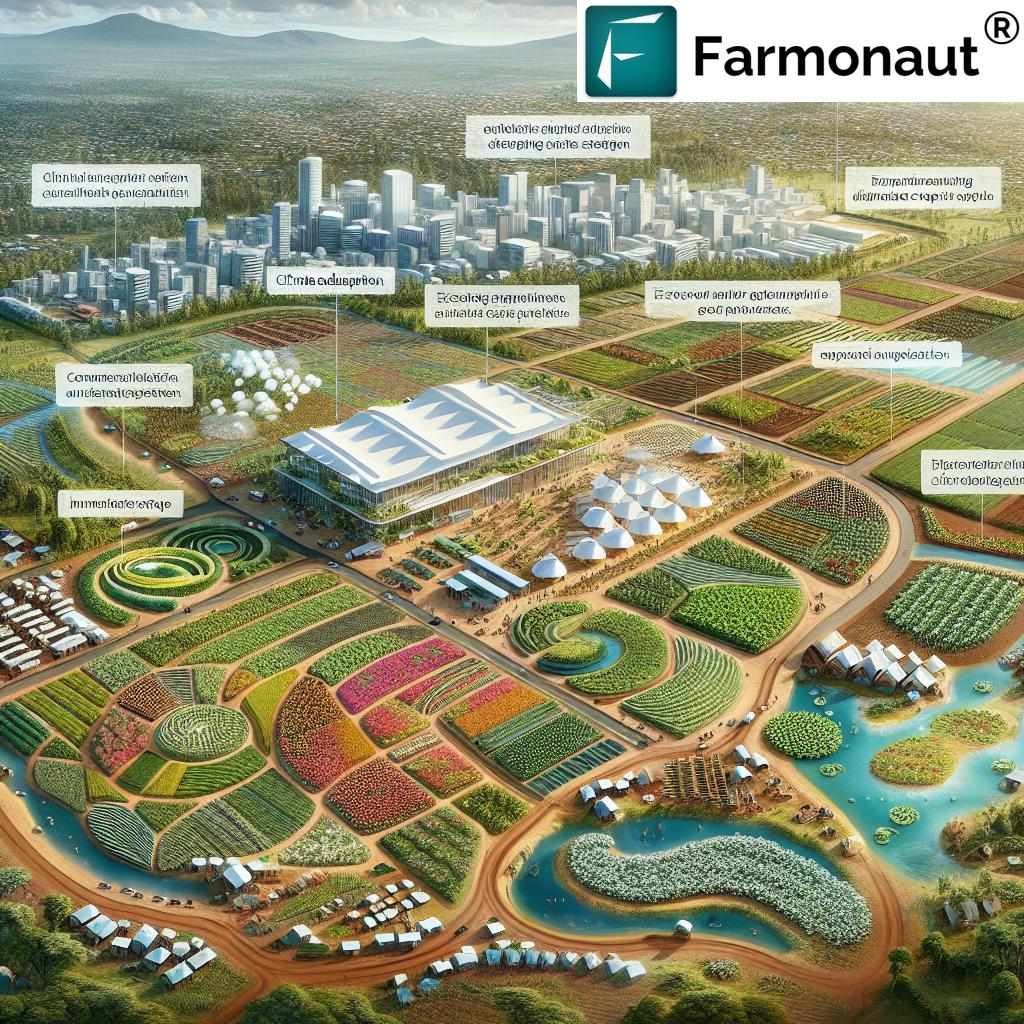
Aligning with Global Sustainable Development Goals
PSTA5 is not just a national strategy; it aligns closely with global Sustainable Development Goals (SDGs), particularly those related to ending hunger, promoting sustainable agriculture, and taking action against climate change.
- SDG 2: Zero Hunger
- SDG 13: Climate Action
- SDG 15: Life on Land
By leveraging technologies like satellite imagery and AI for sustainable land use and efficient resource management, Rwanda is contributing to these global goals while addressing its own national priorities.
Explore how Farmonaut’s API can integrate sustainable agricultural practices into your systems:
Farmonaut API | API Developer Docs
The Role of Public-Private Partnerships in PSTA5 Implementation
The successful implementation of PSTA5 relies heavily on effective collaboration between the public and private sectors. The Rwandan government recognizes the importance of private sector involvement in driving innovation and investment in the agricultural sector.
- Encouraging private investment in agricultural technology
- Facilitating knowledge transfer between research institutions and private companies
- Creating an enabling environment for agritech startups and innovations
Companies like Farmonaut play a crucial role in this ecosystem by providing innovative solutions that align with the goals of PSTA5. Their technologies contribute to the modernization of Rwandan agriculture, supporting the government’s vision for a technologically advanced and sustainable agricultural sector.
Challenges and Opportunities in Implementing PSTA5
While PSTA5 presents a transformative vision for Rwanda’s agricultural sector, its implementation is not without challenges. However, these challenges also present opportunities for innovation and growth.
Challenges
- Limited digital infrastructure in rural areas
- Need for extensive farmer training on new technologies
- Initial high costs of technology adoption
- Ensuring data privacy and security in digital farming
Opportunities
- Development of localized agritech solutions
- Creation of new markets for agricultural data services
- Potential for Rwanda to become a regional leader in agricultural innovation
- Enhanced collaboration between tech companies, researchers, and farmers
Farmonaut’s approach to making precision agriculture affordable and accessible aligns well with addressing these challenges, particularly in terms of technology adoption and farmer training.
The Future of Rwandan Agriculture: A Tech-Driven Sustainable Ecosystem
As we look to the future, the implementation of PSTA5 paints a picture of a Rwandan agricultural sector that is technologically advanced, environmentally sustainable, and economically robust. The integration of AI and IoT technologies is set to create a smart farming ecosystem that is responsive to both market demands and environmental challenges.
- Widespread adoption of precision agriculture techniques
- Increased use of data analytics for agricultural decision-making
- Development of climate-resilient farming systems
- Enhanced food security and nutrition at the national level
In this future landscape, solutions like those offered by Farmonaut will be integral to the day-to-day operations of Rwandan farms, from smallholder plots to large commercial operations.
Experience the future of farming with Farmonaut’s iOS app:
Conclusion: Rwanda’s Path to Agricultural Excellence
Rwanda’s PSTA5 represents a bold step towards creating a sustainable and resilient agri-food system. By embracing advanced technologies like AI and IoT, and leveraging innovative solutions from companies like Farmonaut, Rwanda is positioning itself as a leader in agricultural transformation on the African continent.
The success of this strategic plan will not only revolutionize Rwanda’s agricultural sector but also serve as a model for other nations facing similar agricultural challenges. As we move forward, the collaborative efforts of government, private sector, and farming communities will be crucial in realizing the full potential of this transformative vision.
Rwanda’s agricultural revolution is underway, powered by technology and driven by a commitment to sustainability. The future of farming in Rwanda looks bright, promising increased productivity, improved livelihoods, and a more food-secure nation for generations to come.
Explore Farmonaut’s Subscription Plans
Frequently Asked Questions (FAQ)
Q1: What is PSTA5 and why is it significant for Rwanda?
A1: PSTA5 is Rwanda’s fifth Strategic Plan for Agriculture Transformation. It’s significant because it outlines a comprehensive approach to revolutionize the country’s agricultural sector, focusing on sustainable and resilient agri-food systems using advanced technologies like AI and IoT.
Q2: How does AI contribute to agricultural development in Rwanda?
A2: AI contributes to Rwandan agriculture by enabling precision farming, providing predictive analytics for crop yields, automating pest detection, and offering personalized farm management advice through systems like Farmonaut’s Jeevn AI.
Q3: What role does IoT play in Rwanda’s agricultural transformation?
A3: IoT devices and sensors collect real-time data on soil conditions, weather patterns, and crop health. This enables farmers to monitor and manage their fields with unprecedented precision, leading to more efficient resource use and improved crop yields.
Q4: How does PSTA5 address climate change challenges in agriculture?
A4: PSTA5 emphasizes building climate resilience through the implementation of climate-smart agricultural practices, early warning systems for extreme weather events, and the development of drought-resistant crop varieties.
Q5: What are the economic benefits expected from PSTA5?
A5: PSTA5 aims to achieve a 6.5% annual growth in the agricultural sector, create over 644,000 off-farm jobs, and increase export revenues to 1.54 billion U.S. dollars, contributing significantly to Rwanda’s economic growth.
Q6: How does PSTA5 promote inclusivity in agriculture?
A6: The plan focuses on increasing women’s engagement in agriculture to 72% and creating opportunities for youth through agricultural entrepreneurship programs and digital literacy initiatives.
Q7: What challenges does PSTA5 face in its implementation?
A7: Key challenges include limited digital infrastructure in rural areas, the need for extensive farmer training on new technologies, initial high costs of technology adoption, and ensuring data privacy and security in digital farming.
Q8: How does Farmonaut contribute to Rwanda’s agricultural transformation?
A8: Farmonaut offers satellite-based farm management solutions, AI-powered advisory systems, and blockchain-based traceability, making precision agriculture more accessible and affordable for Rwandan farmers.
Q9: How does PSTA5 align with global Sustainable Development Goals?
A9: PSTA5 aligns with SDGs related to zero hunger, climate action, and life on land, contributing to global sustainability efforts while addressing Rwanda’s national priorities.
Q10: What is the future outlook for Rwandan agriculture under PSTA5?
A10: The future of Rwandan agriculture under PSTA5 is envisioned as a tech-driven, sustainable ecosystem with widespread adoption of precision agriculture, increased use of data analytics, and enhanced food security and nutrition at the national level.









